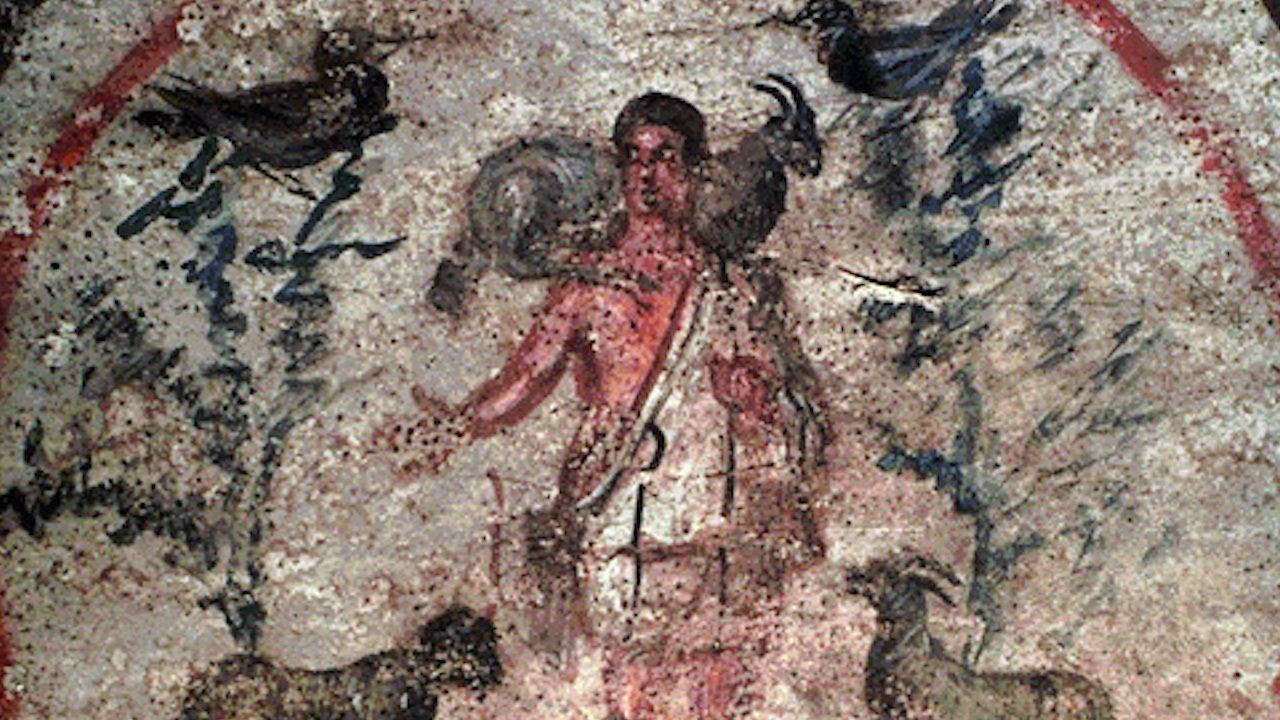WE ARE
today, one and all, too apt to forget the fact that history, in its deepest sense, does not consist merely of secular happenings, but that it is always at the same time a sacred process, a spiritual happening. […] The most truly epoch-making occurrence of that sacred history which is wrought in the depths of the human spirit took place in the midst of time. It was Christ’s act of redemption. Since, however, we have lost our understanding of the metaphysics of history, this fact of redemption in reality of central historical importance will scarcely appear to us as historical. This was not always the case. At first, of course, in the actual moment of its accomplishment, this spiritual and sacred event was recognized in an act of faith by but a few people. Yet this handful immediately began to diffuse such a glow of faith that, as if by a single great miracle, henceforth continually operative, the sun of Christianity rose out of the dark night of paganism, and an entirely fresh chapter of history was begun. […]
This, then, was the quite unique and marvelous achievement of Christian humanity; the childlike cosmic realism of the ancients was not destroyed, but most admirably completed and perfected by a supernatural realism hitherto unknown. As a result, the whole architecture of being stood suddenly revealed with startling clearness before the eye of the Christian. This eye, with the strengthened visual power imparted to it by faith, now not only perceived the aspects of this world with a far greater depths of spiritual insight than the ancients had possessed, but also discovered, as never before, that most profoundly spiritual structure of humanity whose lines prolong themselves to eternity. It is true that Buddha also possessed an insight into this spiritual depth. Nevertheless, his view of the world, measured by the Christian’s depth of vision, was nothing more than a dim conjecture of the ultimate mysteries of the soul. With Christianity came to the human spirit a full awakening, and the vision of the far horizon of human self-knowledge. Christian self-knowledge meant the discovery for the first time of the complete extent of man’s metaphysical structure, and of the entire actual and potential range of his history.
Unfortunately at the present day – so great has been the aberration of the human mind – the man who upholds such a thesis at once exposes himself to ridicule. It is the crying scandal of the modern mind, which owes its present Promethean greatness to the spiritual and intellectual awakening of humanity affected by Christianity, that it has scarcely kept in remembrance even the actual historical fact of the discovery of all those spiritual continents which were then opened up for the first time.
It is especially noticeable in this connection that the Christian discovery of the spirit was not originally undertaken as a purely theoretical task with that intention. On the contrary, Christians had from the very beginning scarcely any other purposed in view beyond the solving of the purely practical problem of their adjustment, in the light of their faith, to the new objective world presented by revelation, in order that they might generate a new being within themselves. Their main task was the creation of the new man by his incorporation into a supernatural reality. And then, out of this new life by faith, there developed a new vision as well, and, simultaneously, the complete whole that is the Christian culture of the Middle Ages. […]
However, the primarily religious orientation of medieval man was already foreshadowed by the naturally religious pietas
of the ancients. It was simply raised from the natural to the supernatural plane. Belief in the supernatural mysteries of revelation now transformed the naturally religious attitude of the ancients towards immanent being into a piety that was in the strictest sense at once natural and supernatural. From this it follows that in spite of everything there exists a far more intimate spiritual relationship, from the point of view of religion, between the Christian of the Middle Ages and the man of antiquity than between the man of antiquity and one of us moderns. It almost seems as if a single great wave of faith welled up out of antiquity and spread over the Christian humanity of the Middle Ages, receiving, to be sure, at this latter stage, after the short interval of classical skepticism, a purely supernatural dynamism.
It is just this spiritual affinity between the classical man and the medieval Christian, inasmuch as both recognized the paramount importance of religion, that we must keep well in view if we are to grasp in all its bearings the transition to the specific forms assumed by modern humanity. For the decisive factor in this great process of reversal is the loss, despite the resumed familiarity with the spirit of antiquity which characterized the Renaissance, not merely of the supernatural religion proper to medieval Christianity, but also by degrees of the natural religion of the ancients. The revolution that produced our modern type of humanity is, judged by its final effects, in the last resort a radical rejection of piety in any shape or form. […]
Even through Stoicism, the most pronounced system of classical rationalism, there runs a clearly perceptible vein of the old religious dynamic. So much is this the case that even a man of the world like Cicero, when compared with a certain type of modern intellectual, is more emphatically a religious man. At the moment, however, when the complete disintegration of the old piety seemed dangerously imminent, there had already set in the new and infinitely stronger current of Christianity – stronger in that it drew upon a supernatural force – and thus, out of the flagging classical spirit was generated the new spring of a new spiritual age.
~Peter Wust, Crisis in the West










